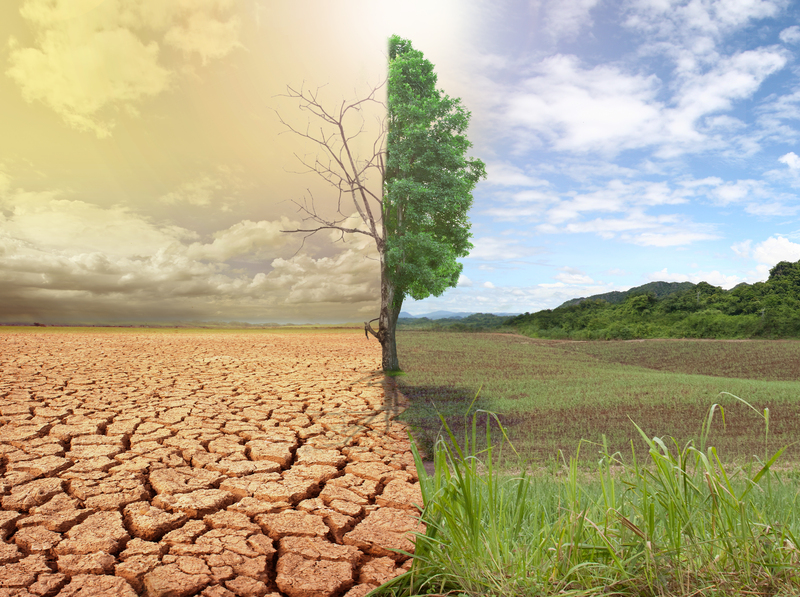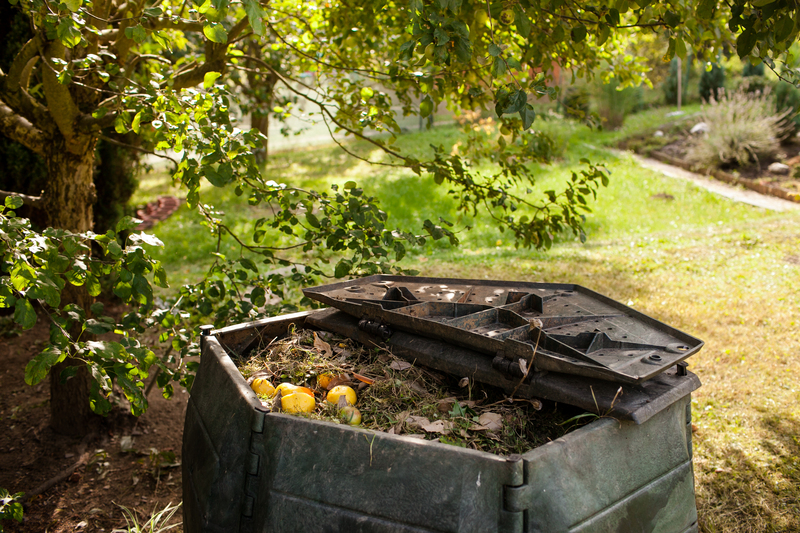Top 10 Creative Methods for Reducing Green Waste
In an era where sustainability and environmental preservation have become crucial, finding new ways to reduce green waste is vital. Organic waste constitutes a significant portion of the total waste stream, and creatively managing it can lead to substantial environmental benefits. Here, we'll delve into ten innovative strategies for minimizing green waste at both the household and community level.
1. Composting at Home
Composting is one of the most effective methods to cut down on green waste. By converting kitchen scraps and other organic waste into nutrient-rich soil, home composting not only reduces the amount of waste sent to landfills but also enhances garden productivity.
- Build a simple compost bin in your backyard or use a compost tumbler to speed up the process.
- Include vegetable peels, fruit scraps, coffee grounds, and eggshells while avoiding meat and dairy products.
- Turn compost regularly to aerate it and promote faster decomposition.
2. Community Gardens
Community gardens are an excellent avenue for reducing organic waste. Participants in these gardens can collectively compost their waste, feeding the soil and fostering community engagement. This not only cuts down organic waste but promotes sustainable agriculture practices.
- Start by coordinating with your local community to identify potential spaces for gardens.
- Share composting responsibilities and educate participants about the importance of minimizing waste.
3. Creative Reuse of Green Waste
Before disposing of organic waste, consider its potential for reuse. Use certain food scraps creatively in your kitchen or garden to extend their life and usefulness.
- Reuse vegetable scraps to make natural dyes.
- Repurpose coffee grounds and eggshells as natural pest deterrents.
- Create flavored vinegars from fruit peels and scraps.
4. Vermicomposting
Vermicomposting uses worms to decompose organic waste, producing a nutrient-rich fertilizer. This method is particularly useful for apartments or homes without space for a traditional compost heap.
- Set up a worm bin using an opaque container, bedding material, and composting worms.
- Monitor moisture levels and feed the worms an appropriate diet of vegetable scraps.
5. Bokashi Fermentation
Bokashi is an anaerobic fermentation process that utilizes beneficial microbes to break down organic material, offering a simple indoor composting solution. It allows for a broader range of waste materials to be processed, including meat and dairy, reducing green waste with efficiency.
- Use a bokashi bucket to ferment food waste, producing a substrate that can be composted or buried.
- Add bokashi bran to accelerate decomposition and neutralize odors.
6. Food Waste Reduction Plans
Planning meals effectively can drastically cut down food waste. By proactively managing your grocery purchases and meal preparations, you can ensure that fewer ingredients are discarded unused.
- Make a shopping list with only essential items to prevent overbuying.
- Get creative with leftovers to avoid throwing them away.
- Store food properly to extend its shelf life.
7. Yard Waste Management
For those who maintain gardens or lawns, managing yard waste effectively is imperative to reduce green waste.
- Grasscycling: Leave grass clippings on the lawn to decompose naturally, returning valuable nutrients to the soil.
- Create mulch from leaves and small branches to use around plants, conserving moisture and reducing the need for landfill disposal.
8. Local Waste Collection Programs
Participate in local municipal or community organic waste diversion programs, which often offer specific solutions for handling green waste.
- Utilize provided bins for collection services dedicated to organic waste.
- Stay informed about local recycling and composting initiatives that help minimize household waste.
9. Green Waste as Animal Feed
Certain organic wastes can be used as animal feed, reducing landfill loads while providing nutrition for livestock. Consult local regulations to ensure compliance and safety.
- Connect with local farms or animal sanctuaries that accept food scraps or yard waste as feed.
- Ensure that the waste is safe and suitable for animal consumption, free from harmful chemicals.
10. Educational Workshops and Community Initiatives
Raise awareness and educate others about the importance of reducing organic waste through workshops and community initiatives.
- Organize neighborhood events to demonstrate recycling and composting techniques.
- Collaborate with local environmental groups to promote sustainable practices.
Reducing green waste effectively requires a combination of innovative thinking and communal effort. By adopting these creative methods, we can minimize our environmental impact and contribute to a more sustainable future. Whether through composting, community engagement, or ingenious reuse, the journey towards reduced organic waste can also be rewarding and community-strengthening.

